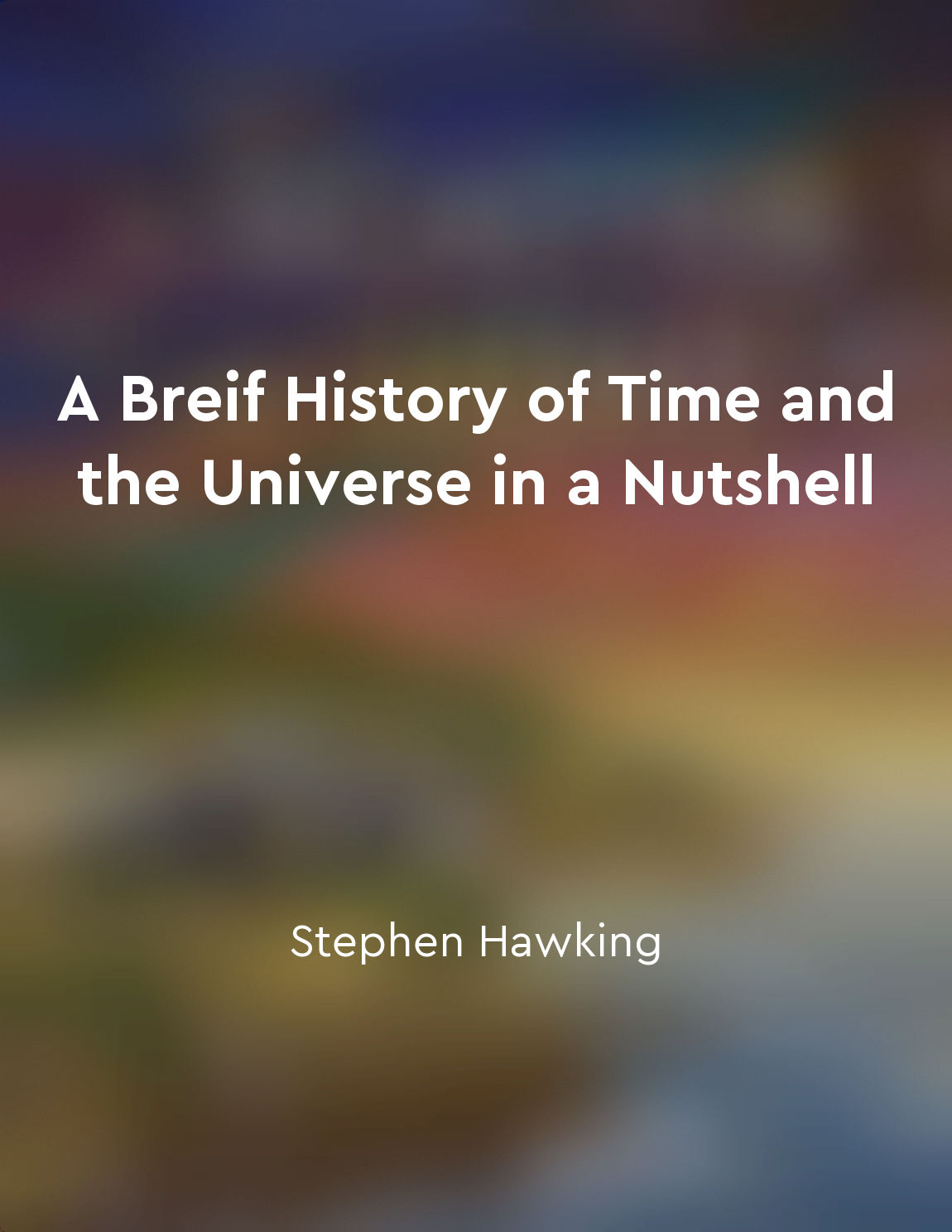Time is not absolute from "summary" of A Breif History of Time and the Universe in a Nutshell by Stephen Hawking
In our everyday experience, time seems to flow smoothly from past to present to future, ticking away consistently. However, according to the theory of relativity proposed by Albert Einstein, time is not as absolute as we might think. Instead, time is intertwined with space to form a four-dimensional continuum known as spacetime. One of the key insights of Einstein's theory is that time is not the same for everyone and everywhere. This concept, known as time dilation, suggests that time can stretch or contract depending on the speed at which an object is moving or the strength of the gravitational field it is in. For example, time moves slower for objects in motion relative to those at rest, a phenomenon that has been confirmed through experiments involving atomic clocks. Furthermore, the theory of relativity implies that time is not a universal clock that ticks at the same rate for all observers. Instead, time is a flexible dimension that can be warped by the presence of massive objects like stars and black holes. This warping of spacetime can lead to phenomena such as gravitational time dilation, where time moves slower in regions of strong gravity. In the grand scheme of the cosmos, the concept of time as a fluid and dynamic dimension becomes even more apparent. The expansion of the universe itself affects the passage of time, leading to a stretching of spacetime known as cosmological time dilation. This means that time can vary not only from one location to another but also on a cosmic scale as the universe continues to evolve.- The idea that time is not absolute challenges our intuitive understanding of the universe. Instead of a linear progression of moments, time is a complex and malleable dimension that is intertwined with space, affected by motion, gravity, and the structure of the cosmos. By embracing the concept of relative time, we can begin to appreciate the intricate and interconnected nature of the universe and our place within it.


